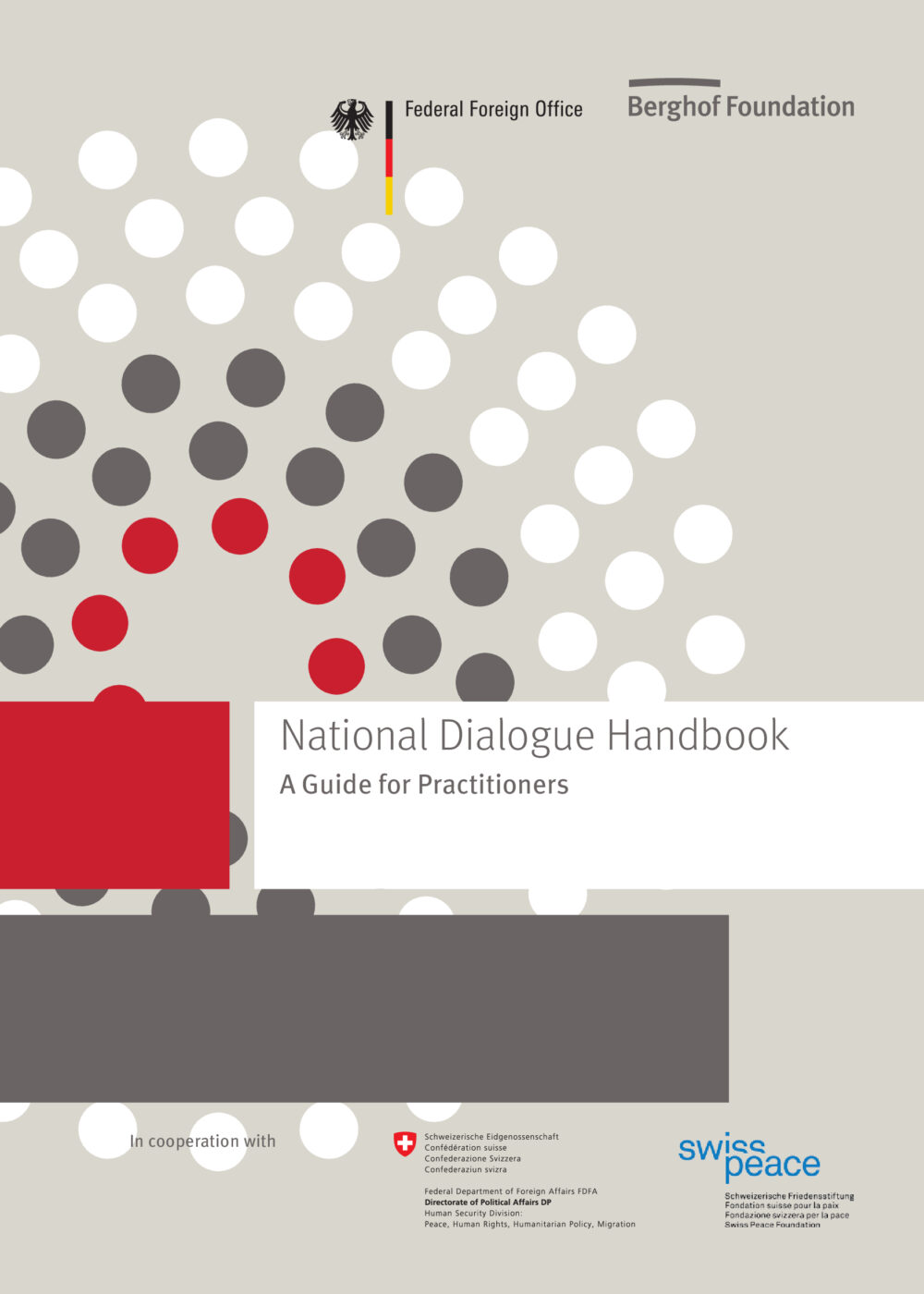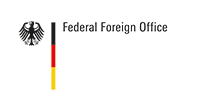COURSE
National Dialogue and peacemaking
From conflict to consensus

This eight-week online course provides an in-depth understanding of National Dialogues and how to prepare, conduct and implement them.
Timeframe: 2026
The course combines various learning formats, features leading experts and experienced practitioners, and immerses in real-world case studies.
The innovative course structure is comprised of three components in order to ensure a comprehensive learning experience:
- An e-learning tool with five self-paced course units,
- Five live facilitated peer-exchange sessions accompanying each unit,
- Five live sessions with input from leading experts and a Q&A following each peer-exchange session.
If you are interested in applying for our course in 2026, sign for for your newsletter to stay up to date on the application process.
These elements build on one another so you can deepen the knowledge you gained in the self-paced learning units by exchanging with your peers and engaging in lively discussions with experts.

We will also discuss the nexus of National Dialogues and current topics such as climate change, protest movements, and digitalisation. You will also have the opportunity to present your own work on National Dialogues, whether to reflect on past experiences or brainstorm on the challenges of an ongoing process
The course language is English.
Tuition fee: 1.750 EUR
Course applications for 2025 are now closed. For inquiries about upcoming trainings, please feel free to email hidden; JavaScript is required, or sign up for our newsletter.
Who should attend
This course is designed for individuals who are likely to participate in, contribute to the design of or provide support for a National Dialogue process. This includes:
- National stakeholders from countries considering or initiating a National Dialogue process to deal with a deep political crisis or political transition,
- Professionals from the diplomatic field, policy sector or peacebuilding organisations who are supporting or may support a National Dialogue process,
- Academics, practitioners and the peacebuilding community at large who would like to learn about National Dialogues and how they might contribute to conflict transformation.
Learning objectives
This course offers the opportunity to expand your knowledge on both the theoretical and practical levels. This includes:
- Establishing a joint understanding of the purpose, key features and phases of National Dialogues,
- Situating National Dialogue in the broader conflict transformation landscape and how it links to other processes,
- Taking a closer look at some of the most critical aspects of National Dialogues such as agenda setting and mandate, inclusivity and ownership, participation and power dynamics, process design, implementation structures and follow-up mechanisms,
- Reflecting on common challenges and dilemmas and drawing lessons from past National Dialogue processes,
- Covering certain under-explored nexus areas and how to best integrate those topics in the design of National Dialogues,
- Bridging theory and practice through live expert sessions and real-world case studies,
- Contextualising the various aspects of National Dialogues to your own context for deep practical insights,
- Becoming part of a global community of practice through exchanging and learning alongside peers from around the world.
Why the Berghof Foundation?
The Berghof Foundation has over 50 years of experience in supporting conflict transformation processes around the world, including peace mediation and National Dialogue support. We have worked extensively on supporting National Dialogue processes in various countries such as Lebanon, Yemen, Sudan, South Sudan and Ethiopia. In 2017, we published the National Dialogue Handbook: A Guide for Practitioners in collaboration with swisspeace. This Handbook is the most comprehensive publication on the topic and includes 19 cases studies. We have also developed and conducted many courses, trainings and workshops on National Dialogue, working with national actors, international organisations, ministries and academics. Drawing on this extensive experience, the course has been designed to provide participants with a theoretical framework and immerse them in real-world examples of National Dialogues.
Methodology
This online course combines various learning formats and components to provide you an enriching opportunity to learn, exchange and become part of a global community of practice.
You will have a weekly unit assignment in our interactive e-learning tool that you can complete on your own time and pace. After each unit assignment, you will join a facilitated live peer exchange session online to discuss any open questions and deepen your understanding through structured group discussions, exercises and reflections. These facilitated peer exchange sessions will help you establish a solid understanding of the subject matter and its nuances and you will benefit from the perspectives and experiences of fellow participants from around the world. You will also have the opportunity to engage in a live expert session with leading international experts and practitioners, which will include inputs from our experts, case studies from different conflict contexts and Q&As. During these sessions, you will be able to connect the theoretical knowledge you gained before with practical experiences and examples from our experts.
Programme
2026 programme TBD.
Faculty
The course is co-led by Narine Karapetyan and Sonja Neuweiler.
Expert inputs by:
- Kasahun Dender, Senior Programme Coordinator, Berghof Foundation
- Juan Diaz-Prinz, Senior Advisor, Berghof Foundation
- Véronique Dudouet, Senior Advisor, Berghof Foundation
- Ahmed Eleiba, Senior Program Officer for Mediation, Swisspeace
- Hans-Joachim Giessmann, Director Emeritus, Berghof Foundation
- Nazanine Moshiri, Senior Advisor on Climate and Peace, Berghof Foundation
- Tatiana Mosquera Angulo, Director of the Strengthen Capacities Center, Transforma, Fundación Ideas para la Paz
- Thania Paffenholz, Director and Founder, Inclusive Peace
- Nang Raw, Peace Practitioner and Dialogue Facilitator
- Susan Stigant, Expert on Inclusive Constitutional Reform, National Dialogue and Peace Mediation
- Luxshi Vimalarajah, Senior Mediation Advisor - Track 1-1.5, Berghof Foundation
- Oliver Wils, Head of Department, MENA, Berghof Foundation
Application requirements
Application procedure
Applications for 2026 TBD.
Tuition Fee
The tuition fee is 1,750.- EUR.
The Berghof Foundation aims to broaden access for more participants by offering a limited number of partial scholarships of 30 per cent (remaining tuition fee to be paid 1,200.- EUR). Special consideration is given to Master’s or PhD students, unemployed or individuals working in grassroots NGOs in related fields, who can demonstrate financial need and practical impact of course.
To apply for the partial scholarship, please complete the relevant section in the application form.
CERTIFICATION
Upon successful completion of the course, you will be awarded a Certificate of Attendance.
In order to successfully complete the course, you are required to attend at least 85% of the live sessions (13 out of 15) and complete the e-learning units.
Contact
For any questions, please reach out to email hidden; JavaScript is required.
Please review our FAQ, terms and conditions and data protection notice.
The e-learning tool was developed in the framework of the Berghof Foundation’s Ethiopia project funded by the German Federal Foreign Office.

Media contact
You can reach the press team at:
+49 (0) 177 7052758
email hidden; JavaScript is required


